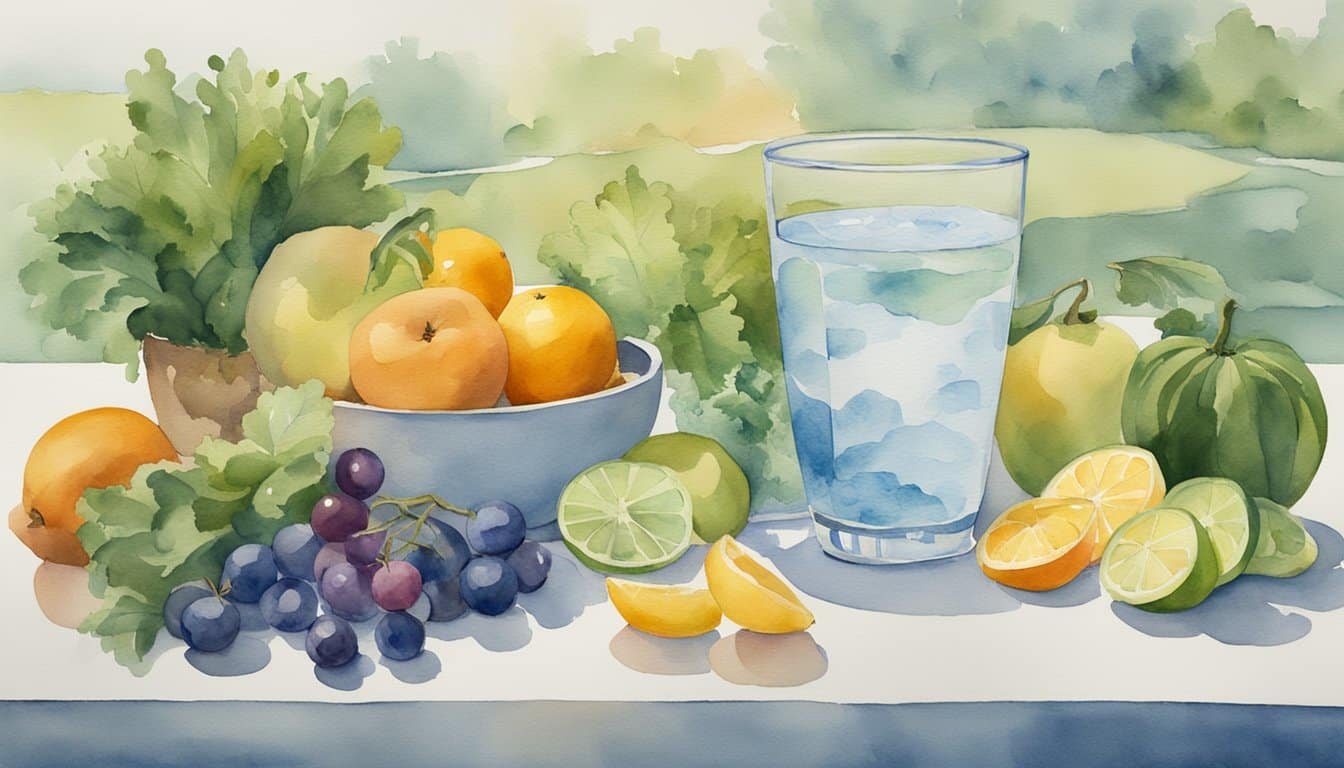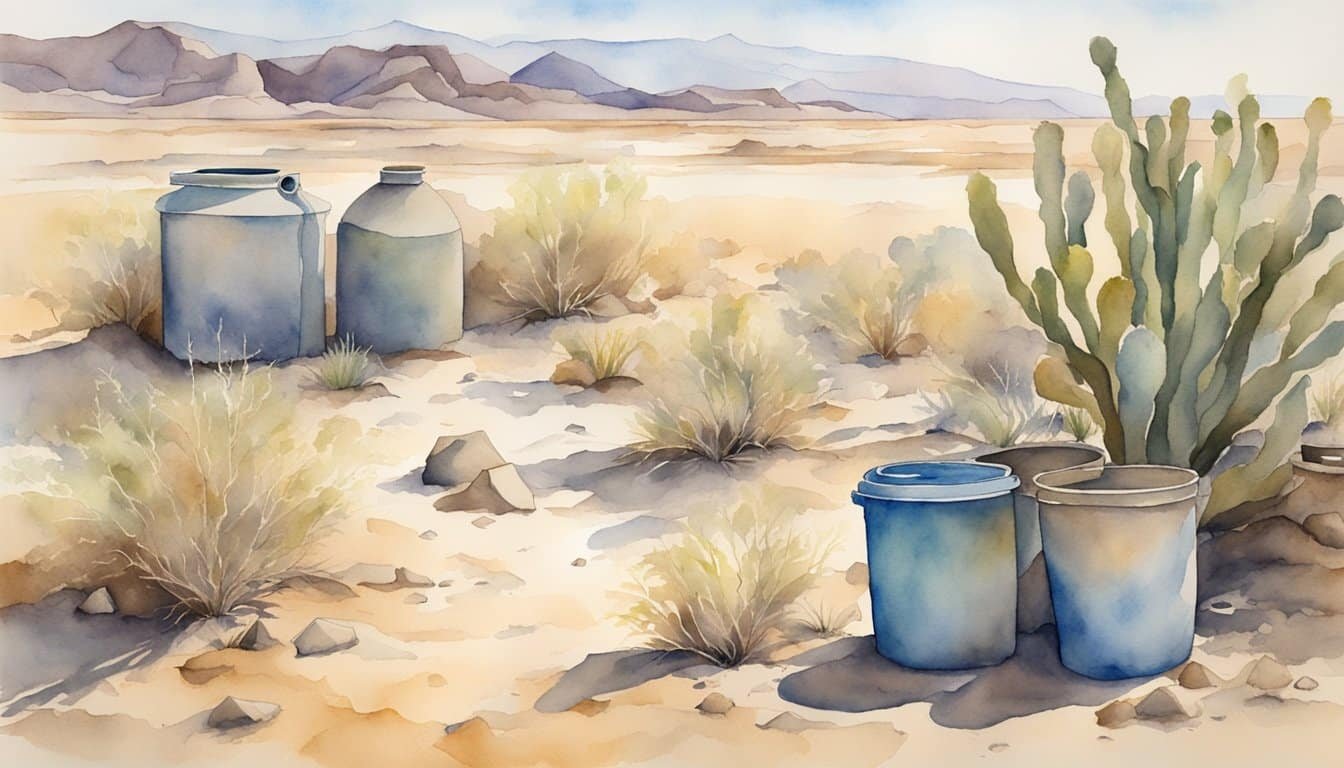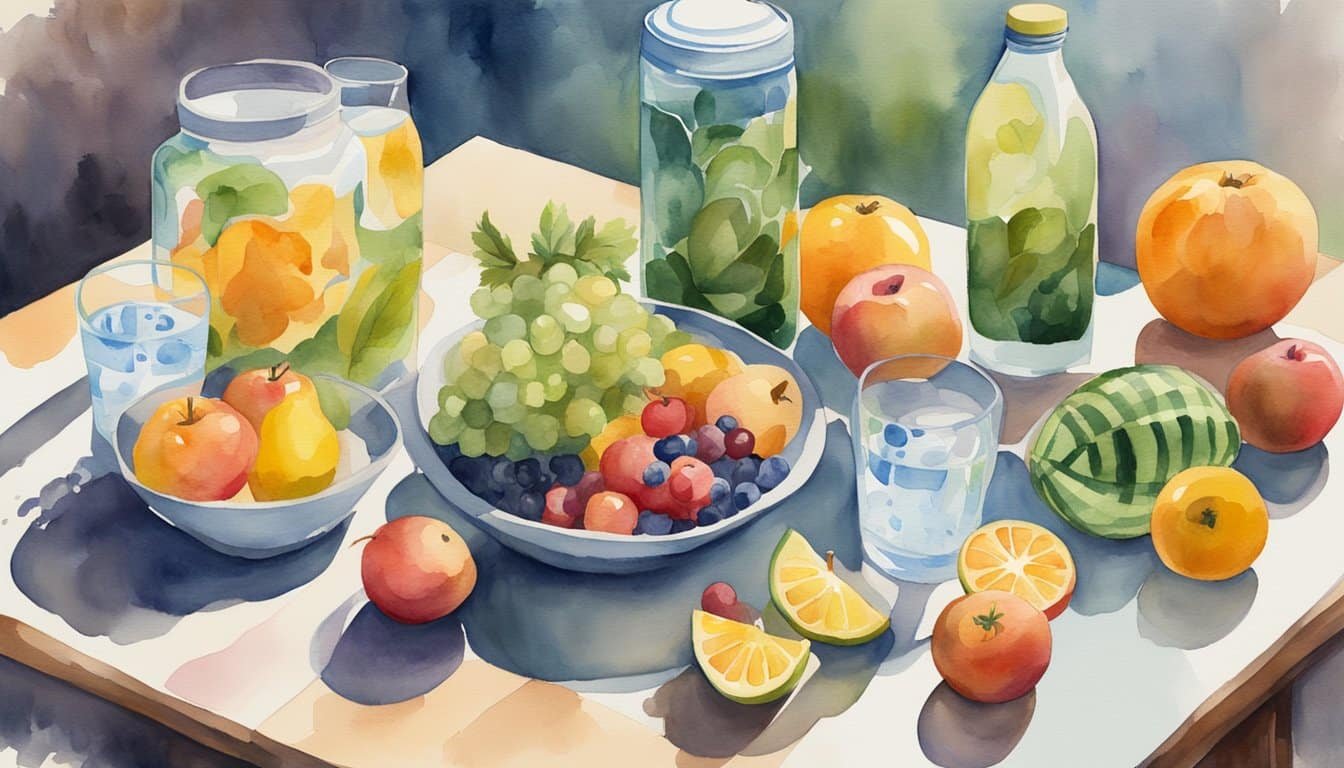Understanding Dehydration and Survival Without Water
Dehydration is the condition when the body loses more water than it takes in. It’s more than just feeling a bit parched—it’s a potentially dangerous state, especially in extreme conditions. So, how long can someone survive without water? Many factors influence this: age, sex, weight, and overall health.
Here’s a quick rundown of what happens in the body during dehydration:
- Loss of water: The body can’t function properly.
- Symptoms: Thirst, dry mouth, fatigue, and dizziness.
- Severe dehydration: Can lead to organ failure and, in extreme cases, death.
Now, the big survival question depends a lot on the environment. In a cool setting with no exertion, one might make it up to a week, but that’s pushing the human body to its limits. In hot, harsh conditions, however, the timeline is significantly shorter—think 48 to 72 hours.
Children and the elderly are particularly at risk, and body weight plays a crucial part, too. Heavier individuals might have more water reserves, but that’s not a rule of thumb to bet your life on.
It’s not just about the lack of H2O. The body misses out on electrolytes that are often found in fluids, which are essential for muscle function and other bodily processes.
Here’s a simple summary:
| Factor Influencing Survival | Impact on Dehydration |
|---|---|
| Age | Very young and elderly are more susceptible. |
| Sex | No significant difference, but men might have slightly more water reserves. |
| Body Weight | Can have more reserves but also a higher need for water. |
| Health | Pre-existing conditions can exacerbate risks. |
Thirsty for more knowledge? Remember that drinking water regularly is crucial, and staying hydrated helps your body stay in tip-top shape!
Factors Influencing Water Needs and Dehydration

When discussing survival without water, it’s crucial to consider how various factors such as environment and lifestyle can drastically alter an individual’s hydration requirements and risk of dehydration.
Impact of Climate and Physical Activity
In hot climates or during intense exercise, the body loses water faster through increased sweat. This can lead to a drop in blood volume, forcing the heart and kidneys to work harder to maintain hydration levels. Athletes and individuals with high activity levels must adjust their water intake accordingly to offset these losses.
Diet and Beverage Choices
While juices and certain foods do contribute to overall fluids intake, they can’t replace water in maintaining optimal hydration. The presence of sugars and electrolytes in some beverages can influence hydration differently than plain water. Diet choices also play a role; foods with high water content can help maintain hydration.
Age, Sex, and Health Conditions
Children and the elderly typically have different water needs due to variations in body composition and kidney function. Sex also influences hydration needs; males often require more water than females. Moreover, certain health conditions can affect hydration by altering the body’s ability to manage water and electrolytes, thereby influencing hydration and fluid requirements.
The Role of Water in the Human Body

Water is the ultimate multitasker in the human body, playing a role in virtually every function. For starters, it’s essential for maintaining hydration levels. A well-hydrated body means that all the cells are bathed in this life-sustaining liquid, which is crucial since cells are the foundational building blocks of all our bodily systems.
Let’s consider some of the key roles water fulfills:
- Body Temperature: Just like a car’s radiator, water helps regulate body temperature through sweating. When the heat is on, water evaporates from the skin’s surface, which cools us down.
- Blood Pressure: Blood, which is more than half water, depends on adequate hydration to maintain proper pressure levels.
- Joint Lubrication: Joints are like the body’s hinges, and they need lubrication to move smoothly. Water ensures that our joints stay supple and protected from wear and tear.
- Digestive Juices: The body produces various juices to break down food, and water is a key ingredient in these digestive cocktails.
When one indulges in alcohol or caffeinated beverages, their body requires extra water to process these diuretics, which can lead to increased urine production and potential dehydration. This dehydration can be a fast track to feeling sluggish or experiencing fatigue. No one wants to feel like a deflated pool floatie, right?
Moreover, water plays a role in flushing waste from the body, balancing electrolytes, and aiding in nutrient transport. Without enough water, people might find their energy levels flagging and their brain functions getting a bit foggy.
In essence, water is the oil in the engine of the human body. Whether it’s powering through a morning workout or crunching numbers at work, staying hydrated is key to keeping the body and mind in tip-top condition. So, don’t forget to keep a bottle handy and sip regularly to keep those internal gears running smoothly!
Identifying and Treating Dehydration

Identifying dehydration is crucial as it can lead to symptoms like thirst, headache, dizziness, and even severe conditions like heatstroke, seizures, or shock if not addressed promptly. Dehydration occurs when the body loses more fluids than it takes in, leading to an imbalance that affects bodily functions.
Signs of dehydration:
- Intense thirst
- Less frequent urination
- Dark-colored urine
- Fatigue or lack of energy
- Confusion
- Dry mouth and mucous membranes
Especially during hot weather, one might experience heat cramps, indicating the body’s need for fluid and salt replenishment. Children and the elderly are particularly at risk and should be monitored closely for these signs.
Treating dehydration involves:
- Increasing water and food intake that contains high amounts of water, like fruits and vegetables.
- Oral rehydration solutions, especially when fever, vomiting, or diarrhea are present, to replace lost fluids and salts.
- Taking breaks in the shade and cooling off if heat exposure is a factor.
- Wearing lightweight clothing to help prevent overheating.
If symptoms persist or worsen, it’s advised to seek help from a doctor. They can provide treatments like IV fluids to quickly restore hydration levels in severe cases.
Prevention, however, is the best strategy:
- Drink plenty of fluids daily, not just when you feel thirsty.
- Consume beverages with electrolytes during intense activity.
- Avoid excessive caffeine or alcohol, as they can contribute to dehydration.
Staying hydrated is essential for keeping one’s organs functioning optimally and maintaining overall health. It’s something that can easily be managed with a little awareness and regular sips of water!
Maximizing Hydration Through Diet and Lifestyle

Staying hydrated isn’t just about drinking eight glasses of pure water a day; it’s also about eating foods high in water content. Let’s dive into the delicious world of hydrating foods!
Fruits: They’re not just tasty; they’re also packed with water. Watermelon, strawberries, and cantaloupe are the MVPs of hydration, containing over 90% water. Berries, although smaller, are also juicy hydration heroes. Include these in your meals as desserts or snacks to help boost fluid intake.
Vegetables: Want a crunchy way to quench your thirst? Look no further than your salad bowl. Lettuce, cabbage, and celery boast high water content and provide that satisfying crunch. They’re perfect for a light, hydrating meal or as a snack.
Table of High Water Content Foods:
| Food Type | Examples | Water Content (%) |
|---|---|---|
| Fruits | Watermelon, strawberries | 90-92 |
| Vegetables | Lettuce, cucumber, celery | 90-95 |
| Dairy | Yogurt, cottage cheese | 80-90 |
| Protein | Shrimp, chicken breast | 60-80 |
Protein and Dairy: Surprisingly, certain protein sources and dairy products have high water content. Cottage cheese and yogurt are not just calcium-rich but also help to maintain good hydration. Shrimp, salmon, and even chicken breast are not only nutritious but contain more water than one might expect.
Including a variety of these hydrating foods in your diet can play a significant role in maintaining fluid balance. Not to forget, enjoying a tall glass of milk not only builds strong bones, it can also contribute to your daily water intake!
Lastly, remember to prepare dishes like pasta and soups, which absorb and retain water, making them a secret weapon for staying hydrated. So, mix it up, have some fun with your food, and keep your hydration at an all-time high!

